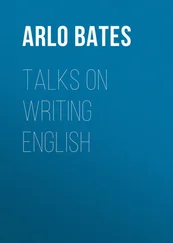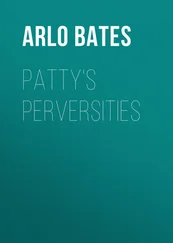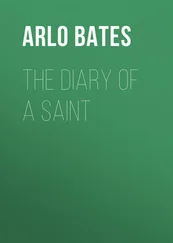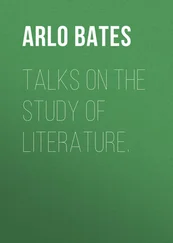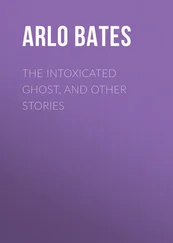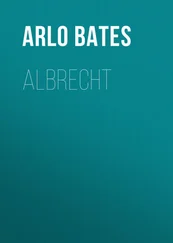Arlo Bates - A Book o' Nine Tales.
Здесь есть возможность читать онлайн «Arlo Bates - A Book o' Nine Tales.» — ознакомительный отрывок электронной книги совершенно бесплатно, а после прочтения отрывка купить полную версию. В некоторых случаях можно слушать аудио, скачать через торрент в формате fb2 и присутствует краткое содержание. Издательство: Иностранный паблик, Жанр: foreign_antique, foreign_prose, на английском языке. Описание произведения, (предисловие) а так же отзывы посетителей доступны на портале библиотеки ЛибКат.
- Название:A Book o' Nine Tales.
- Автор:
- Издательство:Иностранный паблик
- Жанр:
- Год:неизвестен
- ISBN:нет данных
- Рейтинг книги:5 / 5. Голосов: 1
-
Избранное:Добавить в избранное
- Отзывы:
-
Ваша оценка:
- 100
- 1
- 2
- 3
- 4
- 5
A Book o' Nine Tales.: краткое содержание, описание и аннотация
Предлагаем к чтению аннотацию, описание, краткое содержание или предисловие (зависит от того, что написал сам автор книги «A Book o' Nine Tales.»). Если вы не нашли необходимую информацию о книге — напишите в комментариях, мы постараемся отыскать её.
A Book o' Nine Tales. — читать онлайн ознакомительный отрывок
Ниже представлен текст книги, разбитый по страницам. Система сохранения места последней прочитанной страницы, позволяет с удобством читать онлайн бесплатно книгу «A Book o' Nine Tales.», без необходимости каждый раз заново искать на чём Вы остановились. Поставьте закладку, и сможете в любой момент перейти на страницу, на которой закончили чтение.
Интервал:
Закладка:
He. Good. We are sworn friends, then, until you find your ideal man.
She. If you will.
He. Then unmask.
She. Is that in the bargain?
He. Of course. Else how should we know each other again?
She. But —
He. Unmask!
She. Very well, – when you do.
He. Now, then. [ They unmask. ]
She. Philip!
He. Agnes!
She. You knew all the time!
He. Who told you I was here?
She. I didn’t know it.
He. I thought you went to Russia.
She. Well, I didn’t. I hope you feel better! Good night.
He. Wait, Agnes. I —
[ There is a moment’s silence, in which they look at each other intently. He takes her hand in both his. ]
He. Agnes, I am not your ideal man, but —
She. Nor I your ideal woman, apparently. Your wife does not count, you say.
He. No more than your husband; so we are quits there.
She. It’s very horrid of you to remind me of that.
He. I acknowledge that I was always very horrid in everything.
She. Oh, if you acknowledge that, Phil, it is hardly worth while to spend any more time in explanations while this divine waltz is running to waste.
He. But you were tired and out of sorts.
She. You old goose, don’t you see that I’m neither!
He. And you do waltz divinely.
[ They attempt to adjust their masks, but somehow get into each other’s arms. In a few moments more, however, they are seen among the dancers within. ]
Tale the Second.
THE TUBEROSE
“I shall feel honored, Mistress Henshaw, if you will accept this posie as a token which may perchance serve to keep me in remembrance while I am over the sea.”
“I am extremely beholden to you,” replied the old dame addressed, her wrinkled face illuminated with a smile of pleasure. “But for keeping you in remembrance it needs not this posie or other token. I do not hold my friends so lightly.”
“I thank you for counting me one of your friends,” John Friendleton said frankly. “I have no kindlier memories of Boston than of the home under your roof.”
He had placed upon the many-legged table a flower-pot containing a thrifty tuberose, and with a kindly smile upon his handsome and winning face, he stood regarding the old dame into whose custody he had just given the plant. The dress of the period, – the days of the end of the seventeenth century, – plain though it was, accorded well with the sturdy honesty and kindness of his face and the compact and strong build of his figure. The wrinkled crone returned his smile with one of frosty but genuine warmth.
“This plant is none the less pleasing to me,” she said, “though I by no means need it as a reminder. I shall be very careful in its nourishing.”
“It is by no means an ordinary herb,” Friendleton returned lightly. “There may be magic in it for aught I can tell. My uncle, who sent me the bulbs from even so far away as Spain, hath a shrewd name as a wise man; and to say sooth he belike doth know far more than altogether becometh a good Christian. I give you fair warning that there may be mischief in the herb; though to be sure,” he added laughing, “the earth in which it grows is consecrated, for I filled the pot from Copp’s Hill graveyard hard by here.”
A momentary gleam shot with a sinister light its fiery sparkle across the black eyes of Mistress Henshaw.
“To one who feareth no harm,” she answered, “it seldom haps. I trust the wind may hold fair for your sailing,” she added, glancing from the small-paned window, “and that you may safely return to Boston as you are minded.”
“Thank you, I have hitherto been much favored by Providence in my journeyings. Farewell, Mistress Henshaw.”
The old dame received his adieu, and a moment later she watched from the window his active young figure as he walked briskly away. She regarded it intently until a corner hid him from sight. Then she turned back to her room and her occupations.
“Providence, indeed!” she muttered half aloud, with a world of contempt in her tone.
Then she turned to the thrifty, healthy tuberose and caressed its leaves with her thin old fingers as if it were alive and could understand her attentions.
The house in which this conversation took place was still standing a few years since, the oldest in Boston, at the corner of Moon and Sun Court streets. It was erected in 1669; its timber, tradition says, being cut in the neighborhood. The upper story projected over the lower like a frowning brow, from beneath which the windows shone at night like the glowing eye-balls of a wild beast. It was a stout and almost warlike-looking edifice, which preserved even up to the day when, in 1878, it was at length pulled down by the hand of progress, a certain strongly individual appearance, which if less marked at the time when John Friendleton bade Mistress Henshaw good-by, and the building was thirty years old, must always have distinguished the dwelling from those about it.
Dwellings, however, take much of their air from dwellers, and Mistress Henshaw was likely to impart to any house she inhabited a bearing unlike that of its neighbors. She was a dame to all appearances of some three score winters, each frosty season having left its snow upon her hair. Her figure was still erect, while her eyes were piercing and black and capable of a glance of such strength and directness as almost to seem supernatural.
It may have been from the power and fervor of this glance that Mistress Henshaw acquired the uncanny reputation which she enjoyed in Boston. As she moved with surprising energy about the house, overseeing and directing her dumb negro servant Dinah, the eyes of passers-by who saw her erect figure flit by the windows were half averted as if from some deadly thing which yet held them with a weird fascination; and at nightfall the children whom chance belated in the neighborhood went skurrying past Dame Henshaw’s house like frightened hares.
It is not perhaps to be told why Satan should have been able to establish his kingdom among a people so devout and pious as the godly inhabitants of the Massachusetts colony; yet we have it upon the testimony of no less a man than the sage and reverend Cotton Mather, whose sepulchre is with us unto this day, and upon the word of many another scarcely less wise and devout, that the Father of Evil did establish a peculiar and covenant people of his own in the midst of the very elect of New England. It may be that it is always as it was in the days of Job, and that the sons of God never assemble without finding in their midst the dark form of Lucifer; for certain it is that the devil, to quote the Rev. Cotton Mather’s own words, “broke in upon the country after as astonishing a manner as was ever heard of.”
“Flashy people,” quaintly and solemnly remarks the learned divine, “may burlesque these things, but when hundreds of the most sober people in a country where they have as much mother-wit certainly as the rest of mankind, know them to be true , nothing but the absurd and forward spirit of Sadducism can question them.” From all of which, and from much more which might be cited, it is evident that there was plenty of witchcraft abroad in those days, whether Mistress Henshaw was concerned therein or not.
It is sufficient to note that certain gossips scrupled not to declare that Dame Henshaw was one of the accursed who bore the mark of the beast and kept tryst at the orgies of the witches’ sabbath, and the report once started the facts in the case made little difference. Some of her neighbors went so far as to declare that if the dame’s residence were forcibly changed from Sun Court street to Prison lane, the community would be the better off.
Читать дальшеИнтервал:
Закладка:
Похожие книги на «A Book o' Nine Tales.»
Представляем Вашему вниманию похожие книги на «A Book o' Nine Tales.» списком для выбора. Мы отобрали схожую по названию и смыслу литературу в надежде предоставить читателям больше вариантов отыскать новые, интересные, ещё непрочитанные произведения.
Обсуждение, отзывы о книге «A Book o' Nine Tales.» и просто собственные мнения читателей. Оставьте ваши комментарии, напишите, что Вы думаете о произведении, его смысле или главных героях. Укажите что конкретно понравилось, а что нет, и почему Вы так считаете.





